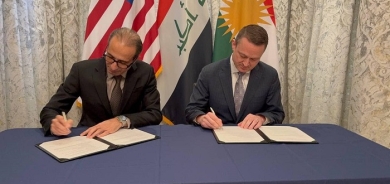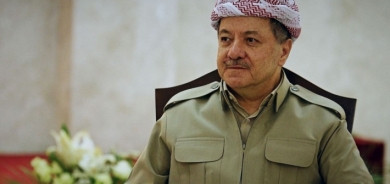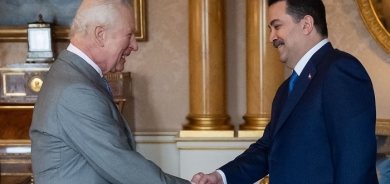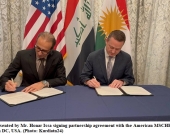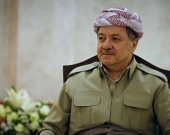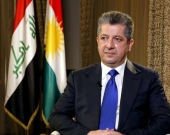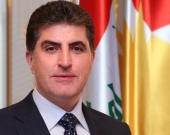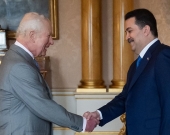Analysis: Yemen leader basks in U.S. favor as drone strikes fuel rage

As Abd-Rabbu Mansour Hadi cements his ties with Washington, Yemen's interim president risks alienating his own people, who resent the U.S. drone war on al Qaeda in their country.
Hadi's White House visit on August 1, a mark of favor from the United States, coincided with an intensification of U.S. drone attacks on suspected members of Al Qaeda in the Arabian Peninsula (AQAP), the Yemen-based group seen by the West as one of the global militant movement's most aggressive branches.
The State Department also temporarily closed its embassy in Sanaa and withdrew some diplomats over warnings of a potential al Qaeda attack, with other Western embassies following suit.
Yemen at first decried these measures as exaggerated. But it later said it had foiled an AQAP plot which also involved seizing energy facilities and a provincial capital, a claim which a government spokesman in Washington later played down.
Drones have killed at least 37 people in just over two weeks amid extra security measures that have frayed Yemeni nerves.
In Sanaa, a U.S. reconnaissance plane buzzed overhead for hours each day and security checkpoints mushroomed across the capital during the normally joyous Muslim Eid al-Fitr feast.
"Hadi has done nothing for Yemen, except to let American planes kill people whose guilt is not known," complained Majida al-Maqtari, a Sanaa school teacher who said she had voted for Hadi in the last election but would back an opponent next time.
LONG-RUNNING TURMOIL
Hadi took office with firm U.S. support after protracted unrest forced veteran President Ali Abdullah Saleh, once also a U.S. ally, to step down in late 2011 after 33 years in power.
A southerner with a military background, Hadi was Saleh's vice president for nearly two decades. So far he has kept the support of Saleh's friends and foes alike and has met little serious opposition - not even from Islah, an Islamist party linked to the Muslim Brotherhood.
Hadi inherited a country in utter disarray. The anti-Saleh uprising and ensuing power struggles had brought Yemen's tattered economy to its knees. Islamist militants had taken over swathes of the south. Many state institutions had collapsed.
He moved swiftly to clear an estimated 3,000 al Qaeda and allied fighters from southern towns in a U.S.-backed offensive.
Hadi knows, as Saleh did, that pleasing the United States boosts the flow of military aid and badly needed humanitarian support. Washington allocated $345 million to Yemen in 2012 and is expected to give $250 million in 2013 and the same in 2014.
But many Yemenis who opposed Saleh are dismayed by the drone attacks and their country's continued dependency on Washington.
"These strikes project Hadi as implementing the agenda of his predecessor, and for sure affect his popularity," said Yahya Qasseb bin Sahl, law professor at Aden University. "They also channel the Yemeni street's feelings in favor of al Qaeda."
A national reconciliation conference led by Hadi is due to conclude next month. Its aims include tackling the grievances of southern Yemeni separatists and of Shi'ite rebels in the north - two groups which Saleh fought and failed to crush.
Yet progress on a new constitution to be completed before scheduled elections in 2014 has been slow and many Yemenis are unconvinced that the dialogue will end chronic corruption or the conflicts of an impoverished nation whose 25 million people form a patchwork of tribal, sectarian and regional affiliations.
Stability in Yemen is a global concern due to its proximity to Saudi Arabia and key shipping lanes, as well as al Qaeda's efforts to exploit its chaotic government and rugged terrain.
Yemen also risks becoming a proxy battleground in a regional struggle between Iran, accused by Sanaa of backing Shi'ite-linked Yemeni rebels in the north, and Saudi Arabia, which is thought to support their hardline Sunni Muslim Salafi rivals.
REVENGE
In this maelstrom, Washington finds Hadi a more amenable partner than Saleh, depicted in U.S. diplomatic cables released by WikiLeaks as manipulative, self-serving and untrustworthy.
Tensions with Saleh often flared because he offered himself as an ally in combating al Qaeda, while sometimes striking deals with militants instead of seeking to root them out, as the United States wanted. With Hadi, things are markedly different.
"He is everything his predecessor wasn't in terms of his determination, his understanding of the threat ... his determination to destroy al Qaeda," said Daniel Benjamin, who was deeply involved in Yemen policy as former head of the State Department's counter-terrorism office.
Hadi must also stay on good terms with Saudi Arabia, the world's top oil exporter and Yemen's main patron, which played a vital role in diplomacy that eventually eased Saleh from power.
However, Riyadh has deported more than 50,000 Yemenis this year in a crackdown on unregistered foreign workers that is depriving Yemen of a major source of hard currency remittances.
Courting the United States may help insulate Hadi against such knocks, but American support is no longer guaranteed to keep Arab leaders in power, as was shown when a popular uprising overthrew Egypt's Hosni Mubarak, a longtime U.S. ally, in 2011.
And the U.S. drone strikes, which infuriate many Yemenis, pose a political risk for the interim Yemeni leader.
Reliable casualty figures from the attacks are elusive, but estimates range between 600 and 2,000 people killed since 2002, with little clarity on how many of them were militants.
"The American planes are killing Yemeni people, many innocent civilians," said human rights campaigner Abdulrahman Barman earlier this year. "In many regions these planes represent fear and horror and this leads to hostility ... between Yemenis and Americans."
Critics say that while drone strikes may eliminate some al Qaeda militants, they are further radicalizing young Yemenis who have few jobs or prospects in the Arab world's poorest country.
Abdelrazzaq al-Jamal, a Yemeni journalist who specializes in al Qaeda, says the drone campaign is counter-productive.
"There is no province in Yemen, no city, where there are no victims of American drone strikes," he said. "The desire for revenge is growing. This is not in the government's interest but only in the interest of the U.S. war on terrorism."
(Additional reporting by Khaled Abdullah in Sanaa, Mohammed Mukhashaf in Aden, Warren Strobel in Washington, Writing by Sami Aboudi, Editing by Raissa Kasolowsky and Alistair Lyon)
By Mohammed Ghobari


